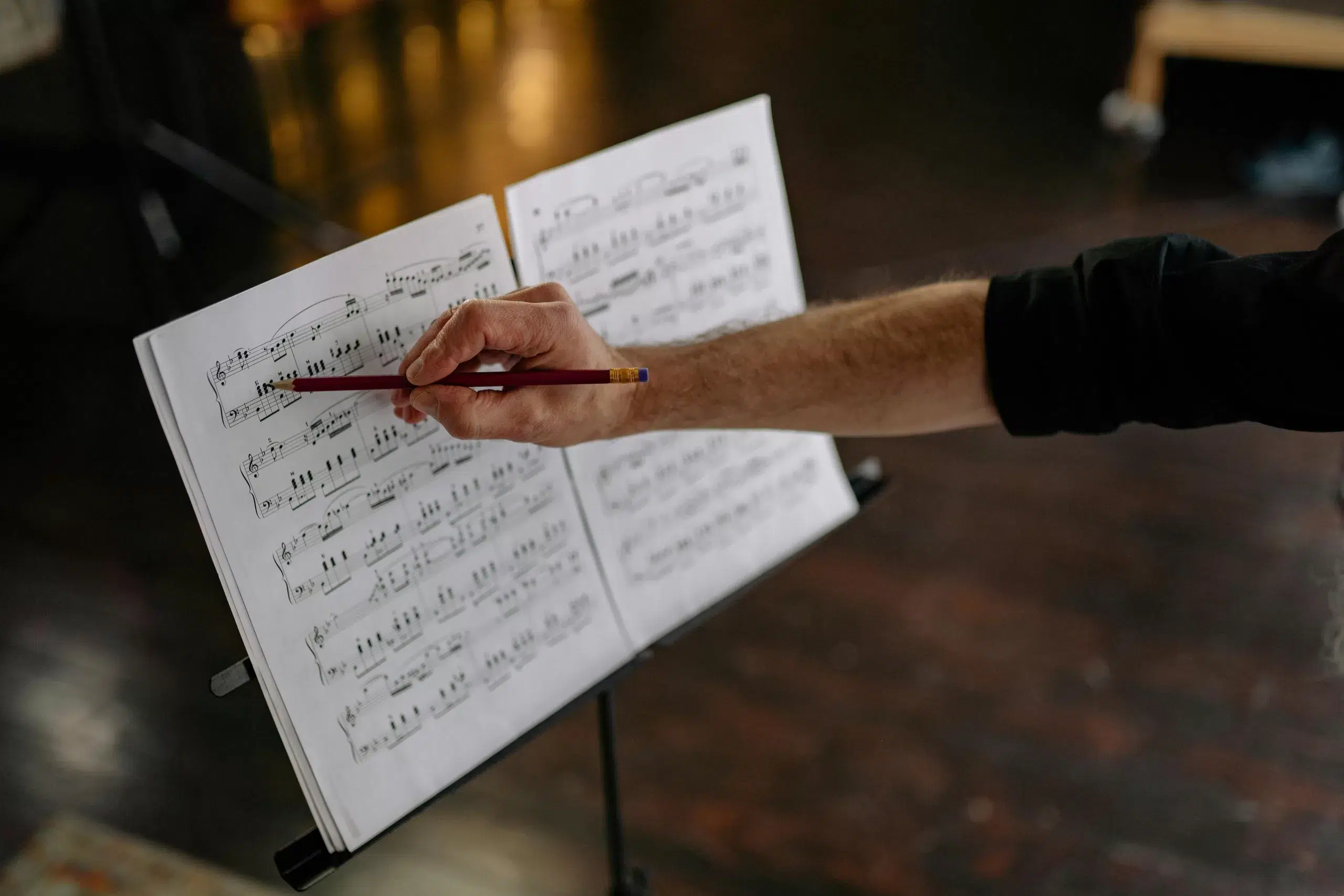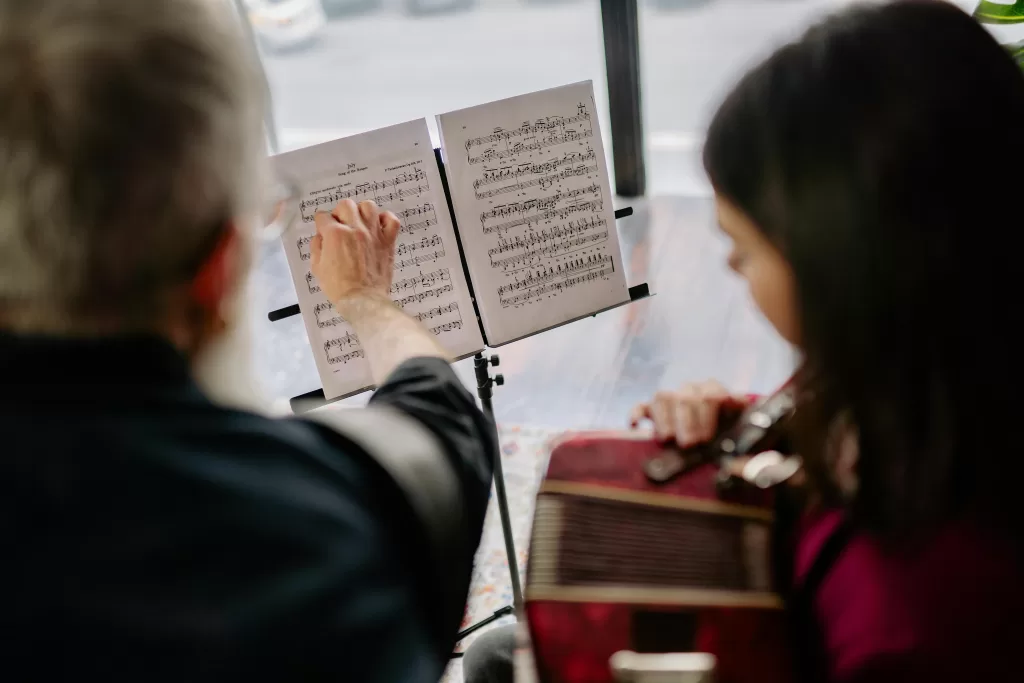Reading time: 5 minutes |
Why Compose?
Composing music is a fulfilling activity that allows you to communicate ideas through sound. Whether for personal enjoyment, academic pursuits, or career aspirations, this experience requires a good level of creativity as well as technical command. This article specifically outlines what composition is about in GCSE Music—a component in which many students seek my guidance.

The Fundamentals of Music Composition
At its core, composing involves organising sound into a coherent form (even though some aesthetics do advocate anti-form or formlessness – but that’s not GCSE’s cup of tea…!). This may include developing melodies, arranging harmonies, structuring rhythms, and manipulating textures in meaningful ways. The choices you make—from which instruments to use to how you articulate the musical gestures—shape the emotional impact and overall flow of your piece.
For many, the process can seem daunting, but it becomes a little more manageable when broken down into the following key stages:
- Generating Ideas: Begin with something humble: a melody, chord progression, rhythmic pattern, or even a mood or image. These ideas are often useful as your creative springboards.
- Structuring the Piece: Decide on the form and the flow of the composition, such as verse-chorus for a popular song, or sonata form for a classical work.
- Choosing the Medium: Think about instrumentation and vocal arrangements—what textures or timbres will best convey your ideas?
- Developing Material: Use techniques like sequence, melodic inversion, variation, and fragmentation to expand your themes. The concepts of antecedent and consequent might come in handy too.
- Notation and Presentation: Write your music down clearly, whether using traditional staff notation, chord charts, or other graphic notations. Precise notation helps performers understand your intentions eventually, although during your creative process you may want to use other shorthands to match the (often faster) speed of the ideas in your head.
What Does Composing Involve in GCSE Music Composition?
For students preparing for exams like the GCSE Music, composing is a structured yet flexible part of the syllabus. The requirements usually include creating two contrasting pieces, one in response to a set brief, and the other a free response.
Each composition is evaluated based on several key criteria:
- Ideas: The quality and inventiveness of melodic and rhythmic ideas.
- Structure: How well the composition is organised, with attention to phrasing, transitions, and overall form.
- Compositional Technique: The development of themes and harmonies, as well as how idiomatically you have written for the chosen instrument(s).
- Score Presentation: The clarity and accuracy of the notated music, whether using traditional notation or alternative systems.
Developing Skills Through Composing
Studying composition not only helps you understand the technical aspects of music but also encourages critical listening and creative thinking. Here’s how composing benefits your overall musicianship too:
- Applying Music Theory: Writing music brings theoretical concepts into practice. You may have learnt about the principles of modulation or chord progression, but when it comes to real composition there are often challenges that are specific to the passage(s) that you are working on, and the solutions are likely achieved through trials and errors.
- Understanding Structure: Like the above, you may have heard a lot about musical forms such as the sonata form. In reality, many composers in the past did not actually just follow these forms; instead, they often play with them, challenge them. That’s what makes their pieces interesting. Knowing what they did against the conventions provide yet another useful perspective into understanding music.
- Improving Aural Skills: Hearing your ideas performed, even in a simple draft, builds a stronger connection between what you write and how it sounds. Whether directly or indirectly, it may also benefit your sight-singing skills, because when composing you are constantly notating down what you hear in your head.
- Learning Notation Software: In today’s digital world, tools like Sibelius, Dorico, or MuseScore help you create professional-looking scores while learning the ins and outs of music notation. As you notate your masterpieces, you will also become more and more fluent in using these softwares, which are essential to being a musician today, especially if you are into composing, arranging, film scoring, teaching, etc.
Composing Lessons Tailored to Your Needs
If you’re preparing for exams or simply interested in composing for personal growth, individual lessons can be invaluable. I offer composition tuition that focuses on:
- Exploring different styles, from classical to contemporary.
- Developing ideas into full compositions, and finding appropriate ways to do so.
- Improve your notation skills with software.
- Learning techniques relating to specific instruments.
Composing is difficult, but it is also a fulfilling and transformative experience. Whatever your motivation, if you’re ready to start, I’d be delighted to guide you through the process. Feel free to contact me for lessons.


